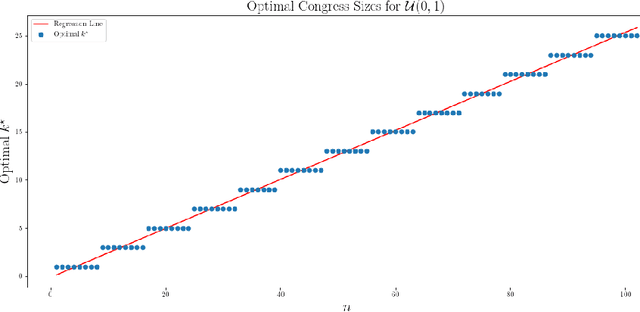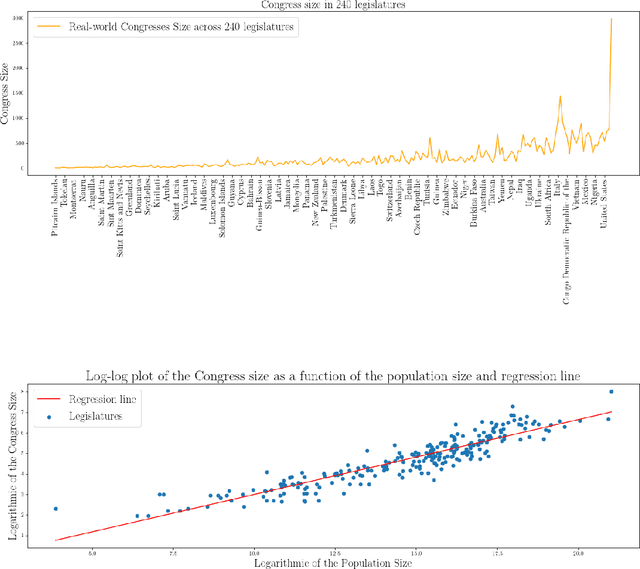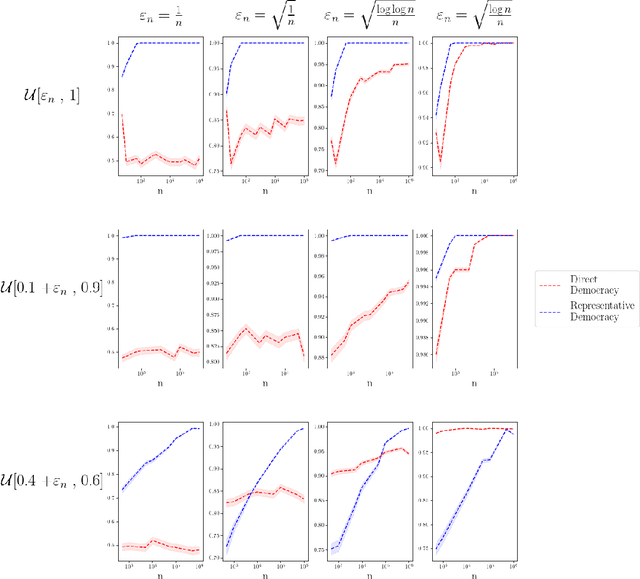The Optimal Size of an Epistemic Congress
Paper and Code
Jul 02, 2021



We analyze the optimal size of a congress in a representative democracy. We take an epistemic view where voters decide on a binary issue with one ground truth outcome, and each voter votes correctly according to their competence levels in $[0, 1]$. Assuming that we can sample the best experts to form an epistemic congress, we find that the optimal congress size should be linear in the population size. This result is striking because it holds even when allowing the top representatives to be accurate with arbitrarily high probabilities. We then analyze real world data, finding that the actual sizes of congresses are much smaller than the optimal size our theoretical results suggest. We conclude by analyzing under what conditions congresses of sub-optimal sizes would still outperform direct democracy, in which all voters vote.
 Add to Chrome
Add to Chrome Add to Firefox
Add to Firefox Add to Edge
Add to Edge